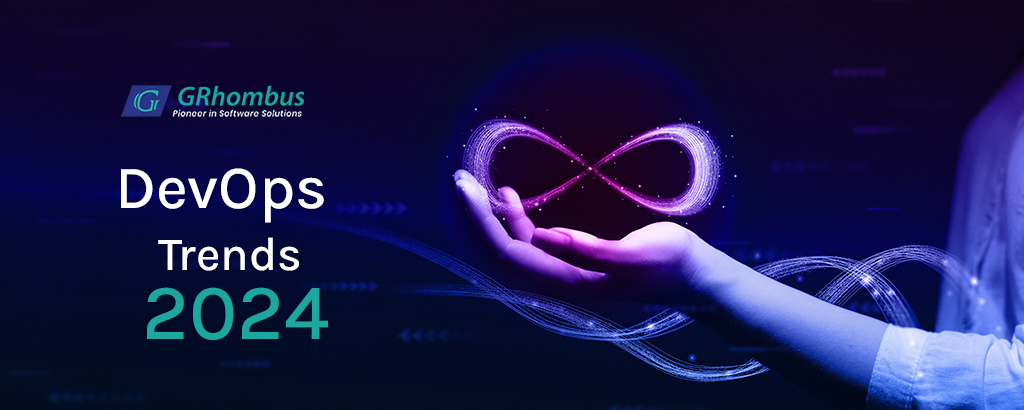In 2024, the landscape of DevOps continues to evolve rapidly, presenting new trends and challenges for organizations to navigate. As technology advancements accelerate and market demands shift, staying ahead of the curve is crucial for businesses striving to remain competitive. Anticipated trends in DevOps for 2024 include the widespread adoption of AI and machine learning to enhance automation and decision-making processes, a growing emphasis on security integration throughout the development pipeline, the rise of edge computing and IoT-driven DevOps practices, as well as increased focus on observability and monitoring to ensure optimal performance and reliability of applications in complex, distributed environments. Embracing these trends can empower organizations to streamline development workflows, improve collaboration between teams, and deliver innovative solutions to market faster and more efficiently.
Top DevOps Trends to Watch Out for in 2024 and Beyond
In today’s rapidly evolving tech landscape, the pace of innovation is relentless. DevOps practices, designed to keep up with the latest technologies, have undergone constant evolution. Advanced tech empowers DevOps teams to transform the software development lifecycle. Let’s explore the emerging DevOps trends shaping 2024.
Exploring Future DevOps Trends: Insights for 2024 and Beyond
- DevSecOps Integration: Seamlessly incorporating security measures into the development pipeline to ensure robust protection against evolving threats.
- Serverless Computing & Microservices: Witnessing a pronounced shift towards more agile and scalable architectures for enhanced efficiency and flexibility.
- AI and ML-Powered Automation: Leveraging advanced technologies to automate repetitive tasks and optimize workflows, driving greater productivity and innovation.
- NoOps Emergence: Anticipating a paradigm shift where operational responsibilities are abstracted away, allowing teams to focus solely on development and innovation.
- DevOps as a Service (DaaS): Embracing cloud-based solutions to streamline DevOps processes, facilitating easier collaboration and resource management.
- GitOps Standardization: Embracing Git as the central control mechanism for infrastructure and operations, ensuring transparency and version control across deployments.
- Kubernetes and Containerization Adoption: Increasing reliance on container orchestration tools like Kubernetes for managing complex distributed applications across diverse environments.
- ChatOps Integration: Introducing chat-based interfaces to automate tasks, facilitate collaboration, and enhance visibility across DevOps workflows.
- Low-code/No-code Automation: Simplifying development processes by empowering non-technical users to build and deploy applications with minimal coding requirements.
- Multicloud Infrastructure Management: Managing workloads across multiple cloud platforms to maximize performance, resilience, and cost-effectiveness.
GRhombus Technologies: Pioneering DevOps Solutions for 2024 and Beyond
As a leading DevOps development company, GRhombus Technologies is poised to address the emerging trends in DevOps for 2024 and beyond. With our expertise and commitment to innovation, we specialize in seamlessly integrating DevSecOps practices into the development pipeline, ensuring robust security measures are incorporated from the outset. Our focus on serverless computing and microservices architectures enables us to assist businesses in transitioning towards more agile and scalable infrastructures, optimizing efficiency and flexibility. Leveraging advanced AI and machine learning technologies, we empower organizations to automate repetitive tasks and enhance decision-making processes, driving greater productivity and innovation in their software development lifecycle. Furthermore, our commitment to staying at the forefront of industry trends allows us to anticipate the emergence of NoOps and provide tailored solutions that abstract operational responsibilities, enabling teams to concentrate solely on development and innovation. With our DevOps as a Service (DaaS) offerings, we facilitate seamless collaboration and resource management through cloud-based solutions, ensuring streamlined DevOps processes for our clients. Additionally, our expertise in GitOps standardization, Kubernetes and containerization adoption, ChatOps integration, low-code/no-code automation, and multicloud infrastructure management positions us as a trusted partner for organizations looking to navigate the complexities of DevOps in 2024 and beyond.
DevOps Trends FAQ: Navigating the Future of Software Development and IT Operations
1. What is a trend in DevOps?
A trend in DevOps refers to the evolving practices, technologies, and methodologies within the field of software development and IT operations. These trends often reflect advancements in technology, changes in market demands, and shifts in industry best practices.
2. What is the trend in DevOps in 2024?
In 2024, DevOps is expected to witness several significant trends, including the widespread adoption of AI and machine learning for automation, the integration of security throughout the development pipeline (known as DevSecOps), the emergence of serverless computing and microservices architectures, and the increasing reliance on cloud-based solutions for DevOps processes.
3. What is the future of DevOps?
The future of DevOps lies in continued innovation and adaptation to emerging technologies and market demands. Trends such as AI-powered automation, enhanced security integration, and the evolution of infrastructure management practices are likely to shape the future landscape of DevOps, enabling organizations to streamline development workflows and deliver innovative solutions more efficiently.
4. DevOps Trends: Shaping the Industry Now and Beyond
DevOps trends play a crucial role in shaping the software development and IT operations landscape both presently and in the future. These trends, driven by advancements in technology and changing market dynamics, influence how organizations approach development processes, infrastructure management, and collaboration between teams.
5. DevOps Overview, News, Trends and Analysis
For the latest insights into DevOps, including news, trends, and analysis, stay tuned to reliable sources within the industry. Keeping abreast of developments in DevOps practices and technologies can help organizations stay competitive and effectively navigate the evolving landscape of software development and IT operations.
